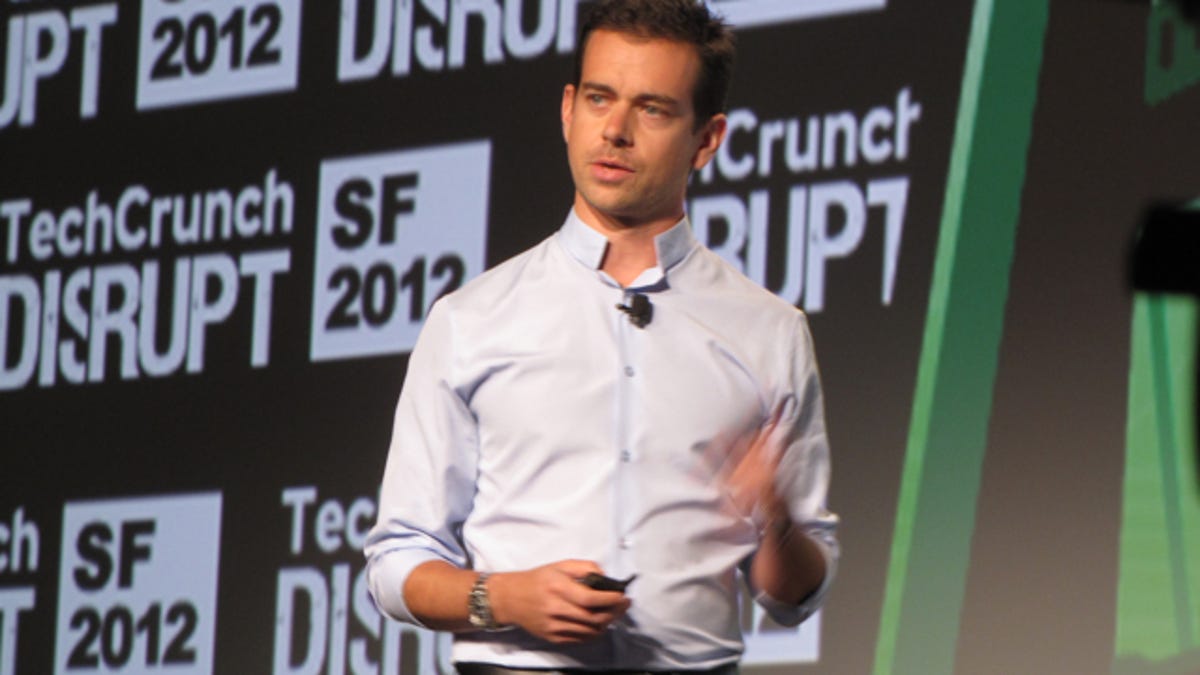Square's Jack Dorsey to tech founders: Question everything
At TechCrunch Disrupt, the Twitter and Square founder said that companies need to continually reexamine what they're doing -- and change as necessary.

SAN FRANCISCO -- Square and Twitter founder Jack Dorsey said today that founders must be willing to accept new ideas -- which can come from anywhere -- if they want their companies to evolve and to keep disrupting existing industries.
Opening his keynote address at TechCrunch Disrupt here today, Dorsey noted that he didn't grow up wanting to be an entrepreneur. Now that he's helped start two of the most important companies in Silicon Valley, though, Dorsey said he wanted to share some of the lessons he's learned during his career, ideas that he clearly thinks can help existing startup founders succeed.
To begin with, he urged, founders need to be open to the kinds of new ideas that can shift what they're doing, and end up making their companies even more vital than before. And those ideas don't necessarily come from within. "An idea that can change the course of the company can come from anywhere," Dorsey said.
As inspiration, Dorsey touted the philosophies of America's founding fathers. He said that while they came up with the notion of a "more perfect union," they realized they weren't going to get it all right the first time around. "A lot of the work had to be unfinished," he said, "open to change [and] evolution."
Plus, he said, America's founders knew that the country wouldn't have just one founding moment, but many, particularly because many of their original ideas would be disproven "again and again and again."
The same is true of tech companies, he said. At Twitter, for example, Dorsey argued that it's important to recognize that although the company's founders were himself, Evan Williams, and Biz Stone, there is no way to evaluate the company without appreciating the contributions of new CEO Dick Costolo.
Dorsey's real message was that founders must be curious and have confidence, and promote productive values. "This is disruption," he said. "It has no purpose, no values, no organizing principle, no direction, and no leadership." Yet by being open to new ideas and by embracing disruption, founders and bring revolution to the table.
Indeed, he added, the most important thing founders need to know is that companies can have a massive impact on the world, even if they move on from where they began. "You just have to have a good idea," he said, "and you have to push as quickly as possible."
With Square, of course, Dorsey has hit his second home run. The company lets almost anyone pay for goods and services using their mobile devices. Its fortunes were boosted immeasurably last month when it struck a strategic partnership with Starbucks that will let customers buy coffee, pastries, and other goods at the worldwide chain using Square's payment system, and included a $25 million investment from the coffee giant.
Starbucks CEO Howard Schultz joined Square's board of directors as part of the arrangement. Square raised a $100 million C round in 2011, giving it a $1.1 billion valuation. More recently, a rumored fourth round of financing could give Dorsey's company a valuation of as much as $4 billion.
Dorsey was Twitter's original CEO, and though he gave up day-to-day responsibilities there in 2008, he returned as executive chairman in the spring of 2011. That gave him daily oversight of a company with a worldwide user base, but which was also struggling to develop a business model that justified the hundreds of millions of dollars in venture financing it had taken.

